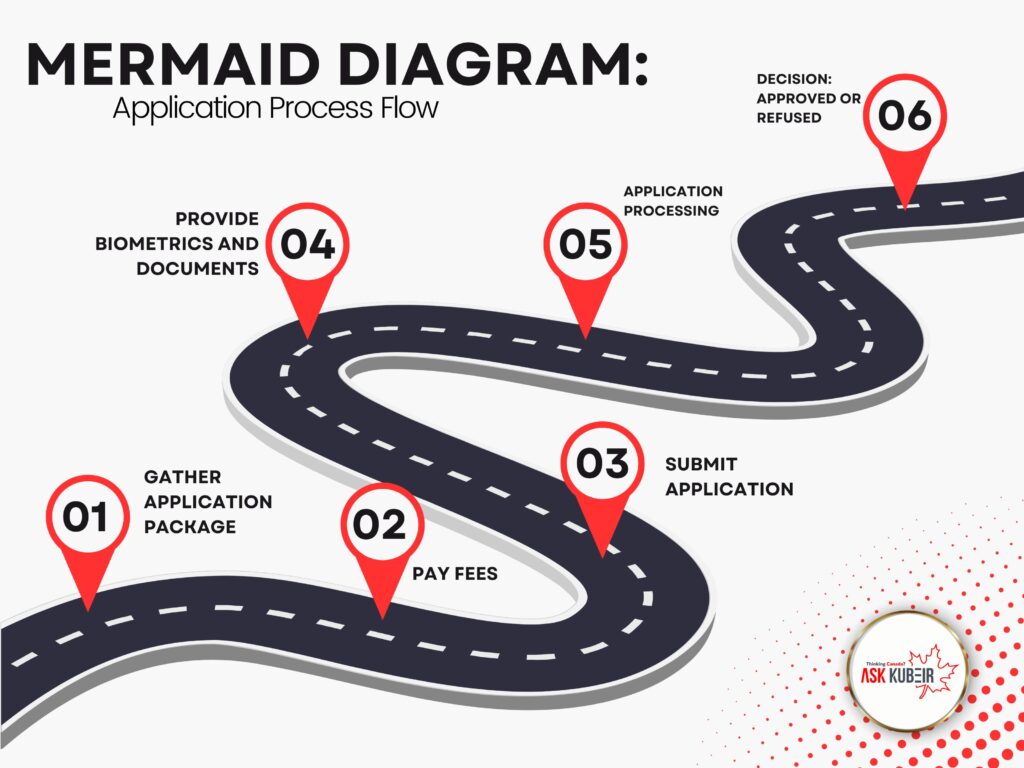
Canada’s spousal sponsorship program allows Canadian citizens and permanent residents to reunite with their loved ones, providing a pathway to permanent residency for their spouse, common-law partner, or conjugal partner. Our detailed guide outlines the key steps, requirements, and considerations to ensure a successful spousal sponsorship application.
Understanding Spousal Sponsorship
Canada places a high priority on family reunification, making spousal sponsorship a cornerstone of its immigration system. Canadian citizens or permanent residents can sponsor their spouse or partner, granting them the ability to live and work in Canada as permanent residents.
Who is Eligible for Spousal Sponsorship in Canada?
Spousal sponsorship covers three types of relationships:
- Spouse: You are legally married.
- Common-law partner: You have lived together for at least 12 consecutive months in a marriage-like relationship.
- Conjugal partner: You have been in a committed relationship for at least 12 months but are prevented from living together due to significant barriers such as immigration restrictions or cultural factors.
Spousal Sponsorship Eligibility Criteria
To be eligible to sponsor your spouse or partner, you must meet several key criteria:
- Be at least 18 years old.
- Be a Canadian citizen, permanent resident, or person registered under the Canadian Indian Act.
- Live in Canada or, if you are a Canadian citizen living abroad, demonstrate your intention to return to Canada once the application is approved.
- Not be receiving social assistance for reasons other than a disability.
- Have the financial capacity to support the sponsored person and any dependent children.
Financial Obligations
As a sponsor, you are responsible for providing for the basic needs of the person you sponsor for three years after they become a permanent resident. This includes housing, food, clothing, utilities, and medical care not covered by Canada’s public health system.
Application Process for Spousal Sponsorship
The application process involves four main steps:
Step 1: Gather the Application Package
Obtain the required forms and instructions from the official Immigration, Refugees and Citizenship Canada (IRCC) website. The application includes forms for both the sponsor and the applicant.
Step 2: Pay the Application Fees
The total cost for spousal sponsorship is CAD 1,290, which covers the sponsorship fee, the principal applicant processing fee, and the right of permanent residence fee. Additional fees apply for dependent children or if the sponsor resides in Quebec.
Step 3: Submit the Application
Submit both the sponsorship application and the permanent residence application simultaneously. Ensure that all required documents, such as proof of relationship and financial support, are included.
Step 4: Provide Biometrics and Additional Documents
Once the application is processed, you will be asked to submit biometrics (fingerprints and photos). Supporting documents, such as proof of shared assets or cohabitation, may also be required to verify the authenticity of your relationship.
Inland vs. Outland Sponsorship
There are two routes for submitting a spousal sponsorship application: Inland and Outland.
Inland Sponsorship
This option is for couples where both the sponsor and the spouse are living together in Canada. The foreign spouse must have temporary status (e.g., as a visitor, student, or worker). An Inland application allows the sponsored person to apply for an Open Work Permit, enabling them to work while their application is being processed.
Outland Sponsorship
Outland applications are typically filed when the sponsored person resides outside of Canada. This option is processed by the visa office in the sponsored person’s country of residence. While the application is in progress, the foreign spouse may travel to Canada, provided they meet visa or Electronic Travel Authorization (eTA) requirements.
| Sponsorship Type | Inland | Outland |
|---|---|---|
| Processing Time | Approximately 12 months | Approximately 12 months |
| Work Permit Option | Eligible for Open Work Permit | Not eligible for Open Work Permit |
| Location of Sponsor | Both sponsor and spouse must live in Canada | Sponsor can reside in Canada, spouse outside |
| Travel Flexibility | Limited, must maintain temporary status in Canada | More flexibility to travel between countries |
Mermaid Diagram: Application Process Flow

Proving Your Relationship is Genuine
One of the key aspects of a successful sponsorship application is proving that your relationship is genuine. This can be demonstrated by providing:
- Marriage certificates, if applicable.
- Joint leases or ownership documents showing shared residence.
- Photos of you and your partner together.
- Proof of shared financial responsibilities (e.g., joint bank accounts, shared utility bills).
- Communications between you and your partner, such as letters, emails, or social media exchanges.
Sponsorship in Quebec
Quebec has its own spousal sponsorship requirements. If you plan to settle in Quebec, you will need to submit additional documentation to the Ministère de l’immigration, de la francisation et de l’intégration (MIFI). MIFI will assess the financial capacity of the sponsor and ensure that they meet Quebec’s criteria for family sponsorship.
Reasons for Application Refusal
Applications can be refused for various reasons, including:
- Incomplete or inaccurate information.
- Insufficient proof of a genuine relationship.
- Misrepresentation of facts.
- Criminal inadmissibility or a prior history of posing a security risk to Canadian society.
In the event of refusal, sponsors have the option to appeal to the Immigration Appeal Division (IAD) within 30 days of receiving the refusal letter.
Frequently Asked Questions
1. Can I sponsor my same-sex spouse or partner?
Yes. Canada recognizes same-sex marriages and partnerships. The same criteria apply as for opposite-sex couples.
2. How long does it take to process a spousal sponsorship application?
On average, it takes 12 months to process a spousal sponsorship application. However, delays can occur if additional information or documents are required.
3. Can I work while my application is being processed?
If you submit an Inland application, you may be eligible to apply for an Open Work Permit, allowing you to work for any employer in Canada while awaiting the final decision on your application.
Conclusion
Canada’s spousal sponsorship program offers a clear pathway for reunifying families. By following the correct steps and providing thorough documentation, sponsors can ensure their applications proceed smoothly. Understanding the Inland and Outland sponsorship options, gathering comprehensive evidence of a genuine relationship, and meeting the financial obligations are all essential to a successful application. For those residing in Quebec, additional provincial requirements must be considered. We recommend consulting legal professionals for personalized advice to navigate the complexities of Canada’s spousal sponsorship program.
Ready to start your spousal sponsorship application? Reach out to our experts for a step-by-step consultation or visit our online resources for more details.
Don’t hesitate to reach out us AsKubeir for expert guidance and personalized support. Let us help you turn your career goals into reality and start your new chapter in Canada with confidence!
CONTACT US!
📞 Call us: 04 526 4646
📲 WhatsApp: wa.me/971529693030
🌐 Website: www.askkubeir.ae





